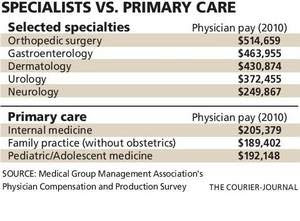By Al CrossKentucky Health News
The effort to quash "pill mills" that feed one of Kentucky's worst problems, prescription drug abuse, stalled on the next-to-last day of the General Assembly's session and faces cloudy prospects on April 12, when the legislature returns to conclude its business. But the legislature gave final passage to a bill aimed at limiting the admission of mental patients to personal-care homes.
The snag in the pill-mill bill stems from the
Kentucky Medical Association's opposition to moving the state's electronic prescription-tracking system to the attorney general's office from the
Kentucky Board of Medical Licensure, which is controlled by doctors and
has been found to go easy on them, compared to other states. The bill includes several other measures, including a requirement that pain clinics must be owned by doctors.
After Sen. Carroll Gibson, R-Leitchfield, failed in a parliamentary maneuver to make the bill more difficult to pass, and Senate President Pro Tem Katie Stine, R-Southgate, ruled that his motion had lost on a voice vote, Majority Floor Leader Robert Stivers, R-Manchester, "said it might be better to consider the bill April 12, but Sen. Ray Jones, D-Pikeville, said delaying a vote on it would give its opponents more time to try to kill it,"
report John Cheves and Jack Brammer of the
Lexington Herald-Leader. "Stivers called for party caucuses to meet to discuss the issue. After the caucus meetings, the Senate adjourned and Stivers said lawmakers would work on the bill for possible consideration April 12."
The session's final day is scheduled to give the legislature a chance to override any vetoes by Gov. Steve Beshear, so a bill passed then could be killed by a veto. That might seem unlikely, since Beshear has been among those pushing for stronger action against pill mills. However, if he were unhappy with a bill the legislature sent him, he could veto it and call a special legislative session to pass one more to his liking. That possibility, and his power to set the agenda of a special session, could make him a player in the negotiations between now and April 12.
The bill�s sponsor, House Speaker Greg Stumbo, D-Prestonsburg, downplayed the problem. He blamed it on "confusion over a provision that limits the amount of drugs that may be supplied to a patient at any one time," Mike Wynn of
The Courier-Journal reports. "Some lawmakers feared that limits on prescriptions would cause more patient co-pays, but a simple fix to the bill�s language could allay those concerns, Stumbo said."
Also on Friday, the legislature sent Beshear a bill that would "require potential residents at personal-care homes to be screened for brain injuries by medical professionals," the Herald-Leader reports. "Personal care homes provide long-term care for people who do not need full-time nursing care but need some assistance."
Senate Bill 115 "stems from the death last year of Larry Lee, a brain-injured resident who disappeared from a personal care home and was found dead four weeks later on the banks of the Licking River, not far from the
Falmouth Nursing Home in Pendleton County," the Herald-Leader notes. "There are about 2,500 to 3,000 people in 82 free-standing personal care homes across Kentucky," and many are mentally disabled or mentally ill.
Kentucky Protection and Advocacy, a watchdog state agency,
released a report last week saying that said placement of the mentally ill in personal-care homes violates federal disability laws. (
Read more)
Kentucky Health News is a service of the Institute for Rural Journalism and Community Issues, based in the School of Journalism and Telecommunications at the University of Kentucky, with support from the Foundation for a Healthy Kentucky. 







